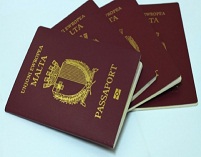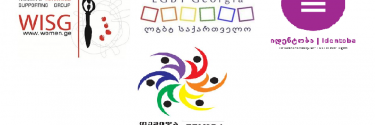Male, Female or X: the new gender options on identification documents
04 02 2015
 Government to allow the possibility of not declaring gender on ID cards and passports
Although ‘male’ and ‘female’ will remain the only sexes recognised by the laws of Malta, the government is set to allow individuals to choose not to declare their sex or gender identity on identification documents through the introduction of an ‘X’ marker.
The decision comes in wake of the Gender Identity Bill tabled in parliament and a consultation process that followed during which an internal discussion took place on how the current ‘male’ and ‘female’ binary possibilities could be addressed on identification documents.
Silvan Agius, human rights policy coordinator at the Ministry for Social Dialogue, explained that Maltese laws regulating passports and ID cards do not specify that sex is limited to male or female.
“This means that the government was in a position to amend its own public policy to welcome the proposal made during the public consultation, even before the adoption of the Gender Identity, Gender Expression and Sex Characteristics Act,” he said.
Agius also confirmed that Identity Malta was already mandated to implement this change and are working on the updating of their forms and database.
Adopting this option will not make Malta unique as a small but growing number of countries already permit ‘X’ passports. Germany, on the hand, does not include sex as a category on its ID cards.
Australia, for example, has already adopted such a system where passports may be issued to sex and gender diverse applicants in M (male), F (female) or X (indeterminate/unspecified/intersex). In Australia, sex reassignment surgery is not a prerequisite to issue a passport in a new gender and birth or citizenship certificates do not need to be amended for sex and gender diverse applicants to be issued a passport in their preferred gender.
The same occurs in New Zealand.
Following new amendments that are yet to come into force, option ‘X’ will be added to entry 6 on passport applications. According to the International Civil Aviation Organisation regulations, “sex of the holder, to be specified by use of the single initial commonly used in the language of the State where the document is issued and, if translation into English, French or Spanish is necessary, followed by a dash and the capital letter F for female, M for male, or X for unspecified.”
Source
Government to allow the possibility of not declaring gender on ID cards and passports
Although ‘male’ and ‘female’ will remain the only sexes recognised by the laws of Malta, the government is set to allow individuals to choose not to declare their sex or gender identity on identification documents through the introduction of an ‘X’ marker.
The decision comes in wake of the Gender Identity Bill tabled in parliament and a consultation process that followed during which an internal discussion took place on how the current ‘male’ and ‘female’ binary possibilities could be addressed on identification documents.
Silvan Agius, human rights policy coordinator at the Ministry for Social Dialogue, explained that Maltese laws regulating passports and ID cards do not specify that sex is limited to male or female.
“This means that the government was in a position to amend its own public policy to welcome the proposal made during the public consultation, even before the adoption of the Gender Identity, Gender Expression and Sex Characteristics Act,” he said.
Agius also confirmed that Identity Malta was already mandated to implement this change and are working on the updating of their forms and database.
Adopting this option will not make Malta unique as a small but growing number of countries already permit ‘X’ passports. Germany, on the hand, does not include sex as a category on its ID cards.
Australia, for example, has already adopted such a system where passports may be issued to sex and gender diverse applicants in M (male), F (female) or X (indeterminate/unspecified/intersex). In Australia, sex reassignment surgery is not a prerequisite to issue a passport in a new gender and birth or citizenship certificates do not need to be amended for sex and gender diverse applicants to be issued a passport in their preferred gender.
The same occurs in New Zealand.
Following new amendments that are yet to come into force, option ‘X’ will be added to entry 6 on passport applications. According to the International Civil Aviation Organisation regulations, “sex of the holder, to be specified by use of the single initial commonly used in the language of the State where the document is issued and, if translation into English, French or Spanish is necessary, followed by a dash and the capital letter F for female, M for male, or X for unspecified.”
Source
Photo

Queer Sisters Run - Social and Environmental Justice

GRADATION - installation for The Trans Day of Remembrance







